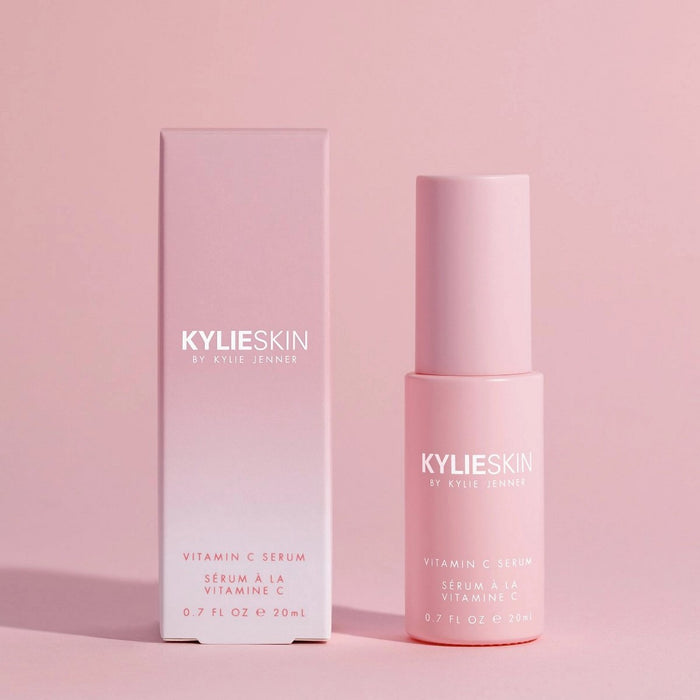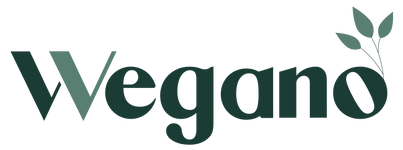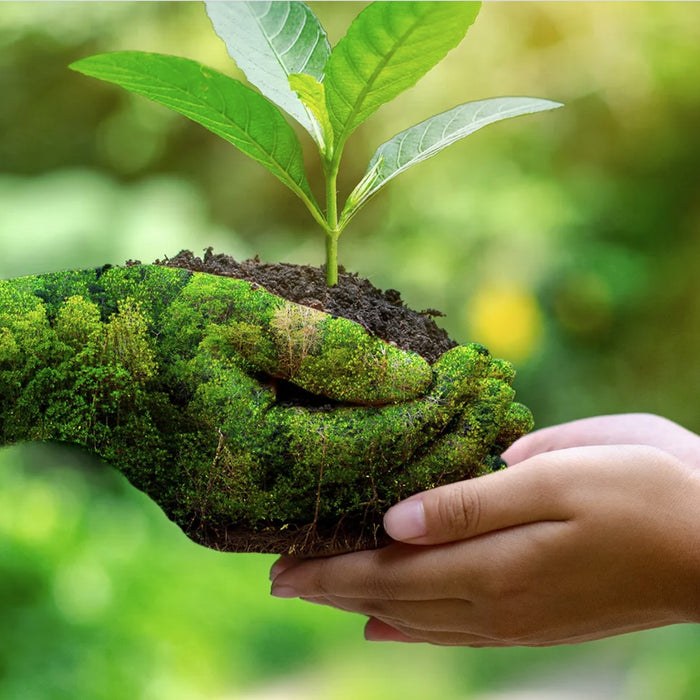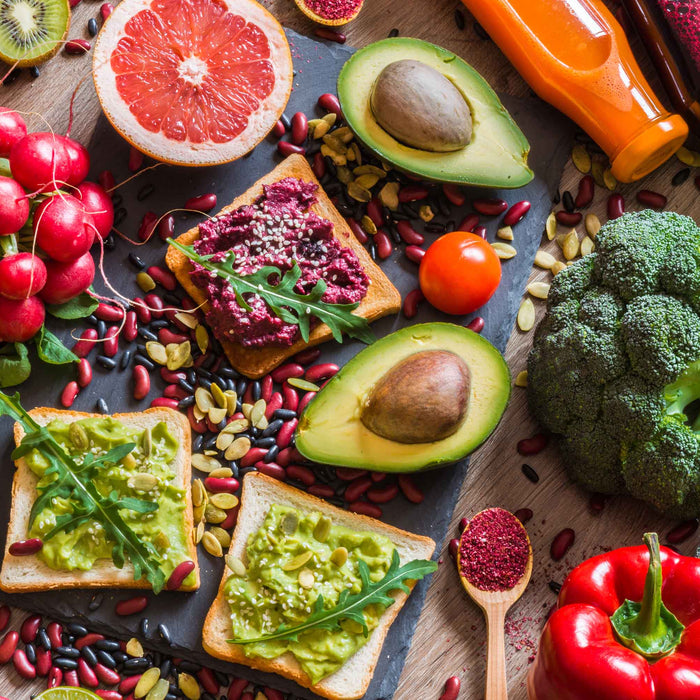As discussed in our previous article here, if you are vegan, then you need to buy products that are both "vegan" and "cruelty-free". However, just as the terms used by brands and manufacturers are confusing, so to are the certifications. Here, we will attempt to explain the difference between the various types of vegan and cruelty-free certifications.
Also, if you aren't vegan but are passionate about or care bout animal rights, then you probably want to strive to buy products that are vegan and cruelty-free. But did you know that there are different certifications for vegan and cruelty-free products? For example, when shopping for beauty products, you may have noticed different certifications and labels on products proclaiming them to be vegan or cruelty-free. But what do these terms mean? And are all vegan and cruelty-free products created equal? Let's decode some of the most popular vegan and cruelty-free certifications so you can make informed choices when shopping for your beauty products.
Cruelty-free Certifications
Leaping Bunny Certification
The Leaping Bunny certification is administered by the Coalition for Consumer Information on Cosmetics (CCIC), a coalition of eight animal protection groups. In order to earn the Leaping Bunny certification, a company must pledge not to test their ingredients or final products on animals at any stage of production, and they must undergo independent audits to ensure compliance. The CCIC also requires companies to sign a legal agreement vowing not to test on animals. Companies that are Leaping Bunny certified must also renew their pledge and agreement every year.
The Leaping Bunny certification is one of the most well-known cruelty-free certifications. Products with the Leaping Bunny certification are guaranteed to be free of animal testing at every stage of production.

PETA Certification
PETA is another popular animal rights organization, and they offer certification for vegan and cruelty-free products as well. PETA's Beauty Without Bunnies program is one of the most recognized symbols of compassion in the cosmetics industry. To be certified by PETA, companies must agree not to test their ingredients or final products on animals, now or in the future. PETA also requires companies to have a written policy prohibiting animal testing that is available upon request.
However, unlike the Leaping Bunny certifications, PETA does not require brands to submit documents from their suppliers, nor does PETA conduct audits to ensure compliance.
Companies that wish to be recertified by PETA every year must also sign an annual affirmation promising not to conduct or commission any new animal tests. However, PETA-approved companies are not required to go through a re-accreditation process once they’re approved.
PETA's certification is slightly different from Leaping Bunny's in that it also requires companies to be free of animal-derived ingredients. So, if a product is certified by PETA, you can be sure that it's completely vegan.


Leaping Bunny by Cruelty-free International
Cruelty-Free International is a UK-based charity that works to end animal testing for cosmetics worldwide. They offer certification for companies that do not test their ingredients or final products on animals, now or in the future.
To be certified by Cruelty-Free International, companies must complete a lengthy application and provide detailed information about their ingredients, manufacturing processes, and animal testing policies. They must also agree to submit to annual audits to ensure compliance.
So, if you see a product with the Cruelty-Free International certification, you can be sure that it has not been tested on animals at any stage of production.
Choose Cruelty-Free
Choose Cruelty-Free (CCF) was an Australian animal rights organization that certifies products as cruelty-free and merged with Leaping Bunny (Cruelty-free International). In order to be listed as CCF-certified, companies must prove that they do not test their ingredients or final products on animals, now or in the future. CCF also requires companies to have a written policy prohibiting animal testing that is available upon request. Companies wishing to be recertified by CCF every year must also sign an annual affirmation promising not to conduct or commission any new animal tests.

Vegan Certifications
Certified Vegan Certification by Vegan Action
The Certified Vegan logo is awarded by Vegan Action, a non-profit organization that educates consumers about veganism and certifies products as vegan. For a product to be certified vegan by Vegan Action, it must not contain any animal ingredients or byproducts and it cannot be tested on animals at any stage of production. Manufacturers of Certified Vegan products must not use any animal derivatives in the production process. The company must also provide Vegan Action with copies of ingredient statements from their suppliers confirming that all ingredients are indeed vegan. Like Leaping Bunny and PETA, companies wishing to retain their Certified Vegan status must renew their certification every year.

V Label by European Vegetarian Union
The V Label is awarded by the European Vegetarian Union (EVU) to products that are completely free of animal ingredients, including honey, eggs, and dairy. To be certified with the V Label, manufacturers must provide the EVU with a list of ingredients as well as information about their production processes. The EVU does not require companies to submit to audits, but they do reserve the right to conduct random spot-checks.

Vegan Australia Certified: Australian Vegan Certified Trade Mark
The Australian Vegan Certified Trade Mark is awarded by Vegan Australia, an organization that advocates for veganism and raises awareness of the benefits of a vegan lifestyle. To be eligible for certification, products must not contain any animal-derived ingredients or byproducts and they cannot be tested on animals at any stage of production. In addition, companies must provide Vegan Australia with assurances that no animal derivatives are used in the production process.
The Australian Vegan Certified Trade Mark is one of the most stringent vegan certifications, as it requires companies to not only avoid using animal ingredients and byproducts, but also to avoid using animal derivatives in the production process.

Vegecert - The Vegan Society Approved
The Vegan Society is a UK-based vegan advocacy organization that was founded in 1944. They are one of the oldest and most well-respected vegan organizations in the world. The Vegan Society trademark, also known as the V Label, is internationally recognized as a symbol of vegan-friendly products. In order to earn the right to use the V Label, companies must prove that their products do not contain any animal-derived ingredients and that they have not been tested on animals. The Vegan Society also requires companies to provide assurances that no animal derivatives are used in the production process.
Unlike some of the other certifications on this list, the Vegan Society trademark is not administered by an independent third party. Instead, companies must apply directly to the Vegan Society for approval.

VegeCert by Toronto Vegetarian Association
The Toronto Vegetarian Association is a Canadian vegetarian advocacy organization that was founded in 1945. They are one of the oldest vegetarian organizations in North America. The VegeCert logo is awarded to products that do not contain any animal-derived ingredients, byproducts, or derivatives. In addition, products bearing the VegeCert logo must not be tested on animals at any stage of production.

Vegan OK by AIAB
Vegan OK is a certification awarded by AIAB, an Italian organization that promotes organic agriculture and sustainable development. To be eligible for certification, products must not contain any animal-derived ingredients or byproducts and they cannot be tested on animals at any stage of production. In addition, companies must provide AIAB with assurances that no animal derivatives are used in the production process.
Vegan OK is one of the few vegan certifications that is administered by an independent third party. AIAB is a well-respected certification organization in Europe with a strong focus on organic and sustainable agriculture.

Anymore?
Yes, there are many more vegan labels across different jurisdictions. In the above list, we listed the common ones found in products sold in US and Canada.
With so many different vegan and cruelty-free certifications out there, it can be hard to keep straight what each one means. Hopefully, this overview has helped you understand some of the most popular ones. If you are a vegan then make sure to shop for products that have both a "cruelty-free" certification and a "vegan" certification, such as Leaping Bunny and Certified Vegan. This will ensure that no animal ingredients are used and that the products/ingredients were not tested on animals.
Remember, Wegano makes this easy as we only sell vegan and cruelty-free products that have at least two of the above certifications, or we verify it ourselves. You can trust that the products listed on Wegano are not tested on animals and don't contain any animal ingredients or byproducts!














